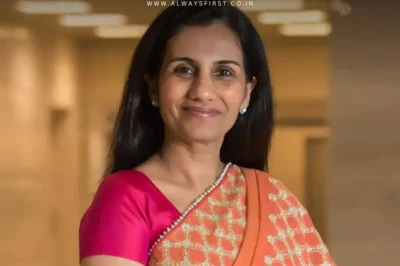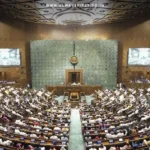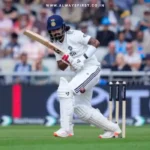Key Points:
✔ Guilty Verdict: Chanda Kochhar found guilty of accepting a ₹64 crore bribe linked to a ₹300 crore ICICI loan to Videocon.
✔ Quid Pro Quo Exposed: Tribunal confirms funds were routed to her husband’s firm, NuPower Renewables, a day after loan disbursal.
✔ Legal Reversal: SAFEMA tribunal overturns 2020 PMLA order, calling it “flawed” and based on “irrelevant considerations.”
Tribunal Exposes ₹64 Crore Bribe in ICICI-Videocon Loan Scandal
In a landmark ruling, the Appellate Tribunal under the Smugglers and Foreign Exchange Manipulators Act (SAFEMA) has held former ICICI Bank CEO Chanda Kochhar guilty of accepting a ₹64 crore bribe in exchange for sanctioning a ₹300 crore loan to the Videocon Group in 2009. The verdict, delivered on July 3, 2025, marks a pivotal moment in the long-standing corruption case that has shaken India’s banking sector.
Quid Pro Quo Uncovered
The tribunal confirmed that the payment was a clear quid pro quo, with the funds being funneled into NuPower Renewables Pvt Ltd, a company controlled by Kochhar’s husband, Deepak Kochhar. The money was transferred just one day after ICICI Bank disbursed the loan to Videocon International Electronics Ltd, reinforcing suspicions of a backdoor deal.
The ruling also overturned a 2020 order by the Prevention of Money Laundering Act (PMLA) adjudicating authority, which had earlier released Kochhar’s ₹78 crore worth of assets. The SAFEMA tribunal dismissed the previous decision as “flawed”, stating it ignored critical evidence and material facts.
A Timeline of the Scandal
The controversy traces back to 2009, when ICICI Bank, under Kochhar’s leadership, approved multiple loans totaling ₹1,875 crore to the Videocon Group. However, it wasn’t until 2016 that whistleblowers raised red flags over a conflict of interest in the transactions.
By 2018, the Central Bureau of Investigation (CBI) launched a probe, leading to a formal FIR in 2019 against Kochhar, her husband, and Videocon promoter Venugopal Dhoot. The charges included criminal conspiracy, cheating, and abuse of official position.
Legal Fallout & Ongoing Battle
Kochhar stepped down as ICICI Bank CEO in October 2018 amid mounting scrutiny. She, along with her husband and Dhoot, was arrested in December 2022 but later secured bail. The case remains active, with the Supreme Court closely monitoring proceedings.
The latest ruling strengthens the Enforcement Directorate’s (ED) case, classifying the ₹64 crore as “proceeds of crime” under PMLA. It also highlights gross lapses in corporate governance at ICICI Bank during Kochhar’s tenure, setting a precedent for accountability in India’s financial sector.
What’s Next?
With the tribunal’s decision, the legal noose tightens around Kochhar, reinforcing the role of regulatory bodies in tackling high-profile financial fraud. As the case progresses, the verdict serves as a stark reminder of the consequences of power abuse and unethical banking practices.
Stay tuned to AlwaysFirst for further updates on this developing story.






































Leave a Reply